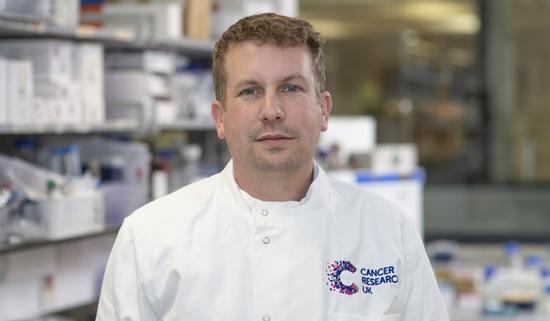A new dual-action cancer-killing virus

Dr Kerry Fisher
Immunotherapy is emerging as an exciting new approach to treating cancers and works by boosting the body’s own immune system to target cancer cells. But unfortunately, immunotherapy does not currently work in all people.
Dr Kerry Fisher, from the Department of Oncology at the University of Oxford, is trialling an innovative viral delivery system for immunotherapy treatment which targets both the cancer and the surrounding cancer-associated fibroblasts (CAFs) a type of cell that prevents the immune system from getting to the cancer cells to destroy them.
Fibroblasts exist throughout our bodies and create the structural framework of the connective tissue which surrounds and protects cells. But cancer cells are able to hijack fibroblasts, turning them into CAFs, and using them as a protective shield from the immune system and to supply the tumour with growth factors and nutrients.
Currently, any therapy that kills the ‘hijacked’ fibroblast cells may also kill healthy fibroblasts throughout the body – for example in the bone marrow and skin – causing toxicity.
Dr Fisher and his team are using a virus called enadenotucirev, which is already in clinical trials for treating carcinomas. Genetic instructions have been added to the virus that tell it to infect only cancer cells and the CAFs around them, leaving healthy cells and healthy fibroblasts alone. This approach could improve outcomes for patients whose cancers are resistant to current treatments.
Part of the virus was also designed to stick to T cells, a type of immune cell. The virus tricks the immune system into thinking that the tumour is a virus so that it launches an immune attack against the tumour.
“Even when most of the cancer cells in a tumour are killed, fibroblast cells can still protect some cancer cells and help them to recover and flourish” says Dr Fisher. “Until now, there has not been any way to kill both cancer cells and the fibroblasts protecting them at the same time, without harming the rest of the body.”
“Using the power of the body’s own immune system to tackle cancer is a growing area of research. This work in human tumour samples is encouraging but can be complicated – one of the biggest challenges of immunotherapies is predicting how well they will work with the patient’s immune system and understanding what the side effects could be.
“The next stage will be using clinical trials to test whether this is both a safe and effective way to treat the disease in people.”
